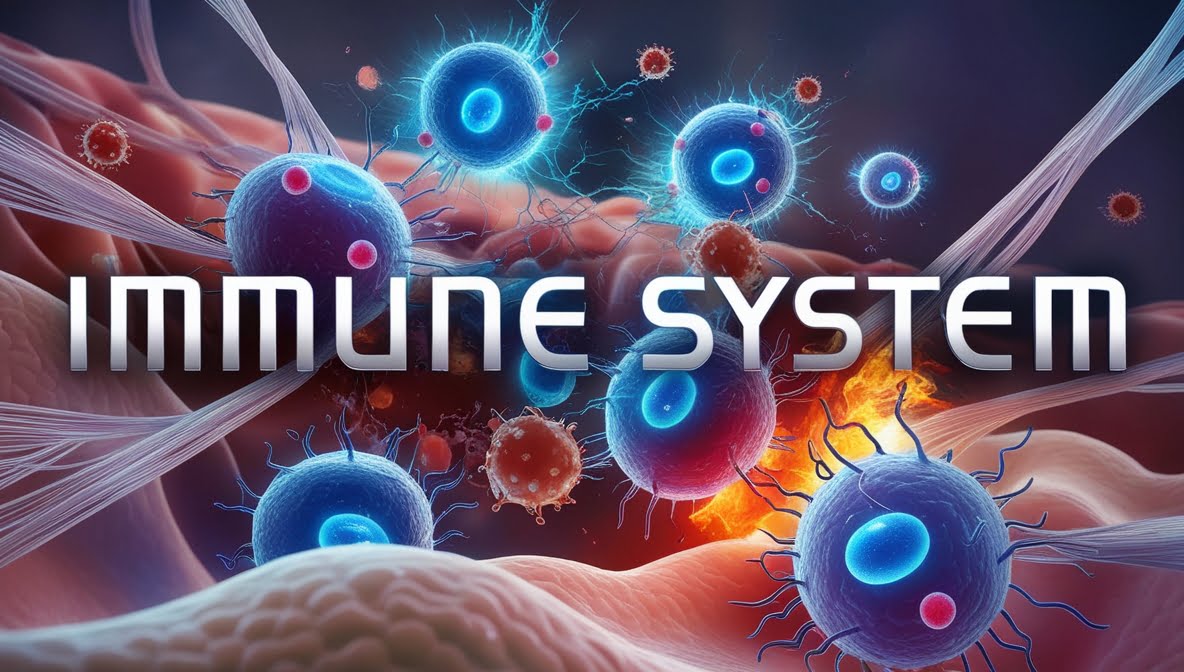The immune system is a complex network that protects our body from harmful invaders like bacteria, viruses, fungi, and parasites. Understanding how it works is essential for maintaining good health and preventing diseases.
What is the Immune System?
The immune system is our body’s defense mechanism against pathogens. It consists of various cells, tissues, and organs that work together to identify and neutralize harmful substances. Without a functioning immune system, our bodies would be vulnerable to infections and diseases.
How Does the Immune System Work?
The immune system operates through two main lines of defense: the innate immune system and the adaptive immune system.
Innate Immune System
The innate immune system is our body’s first line of defense. It responds quickly and is not specific to any particular pathogen. Key components include:
- Physical barriers: Skin, mucous membranes, and other physical barriers that prevent pathogens from entering the body.
- Phagocytes: Cells like macrophages and neutrophils that engulf and digest pathogens.
- Natural killer cells: Cells that attack and destroy virus-infected cells and cancer cells.
- Complement system: Proteins in the blood that enhance the ability of antibodies and phagocytic cells to clear pathogens.
Adaptive Immune System
The adaptive immune system is more sophisticated and specific. It develops a targeted response to specific pathogens and retains a memory of them for faster responses in the future. Key components include:
- Lymphocytes: White blood cells, including B cells and T cells, that play a crucial role in adaptive immunity.
- B cells: Produce antibodies that neutralize pathogens.
- T cells: Destroy infected cells and help coordinate the immune response.
- Antibodies: Proteins produced by B cells that bind to specific antigens on pathogens, marking them for destruction.
How Does the Body Recognize Pathogens?
The body recognizes pathogens through molecules known as antigens. These are unique to each pathogen and are identified by immune cells. Once detected, the immune system mounts a response to eliminate the threat.
How Can I Strengthen My Immune System?
Strengthening the immune system involves a combination of lifestyle choices and healthy habits:
- Eat a balanced diet: Include plenty of fruits, vegetables, lean proteins, and whole grains.
- Exercise regularly: Physical activity boosts the immune system.
- Get enough sleep: Aim for 7-9 hours of quality sleep per night.
- Manage stress: Chronic stress can weaken the immune response.
- Stay hydrated: Drink plenty of water to support overall health.
What Are Common Immune System Disorders?
Immune system disorders can either be due to an overactive or underactive immune system. Common disorders include:
- Autoimmune diseases: Conditions like rheumatoid arthritis and lupus, where the immune system attacks the body’s own tissues.
- Allergies: An overreaction of the immune system to harmless substances like pollen or pet dander.
- Immunodeficiency disorders: Conditions like HIV/AIDS that weaken the immune system and make the body more susceptible to infections.
Tips for Supporting Your Immune System
- Maintain a healthy lifestyle: Balance diet, exercise, and adequate rest.
- Stay up-to-date with vaccinations: Vaccines train the immune system to recognize and fight specific pathogens.
- Practice good hygiene: Regular handwashing and safe food practices reduce the risk of infection.
- Avoid smoking and limit alcohol consumption: These can impair the immune system.
Conclusion
The immune system is a remarkable and complex network that defends our body against pathogens. By understanding how it works and adopting healthy habits, we can support its function and maintain better overall health. Whether it’s through balanced nutrition, regular exercise, or managing stress, every step we take contributes to a stronger immune defense.






